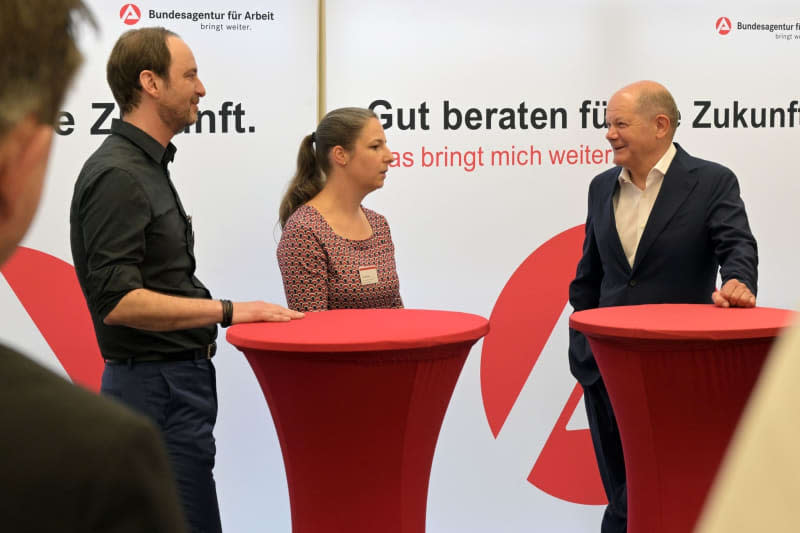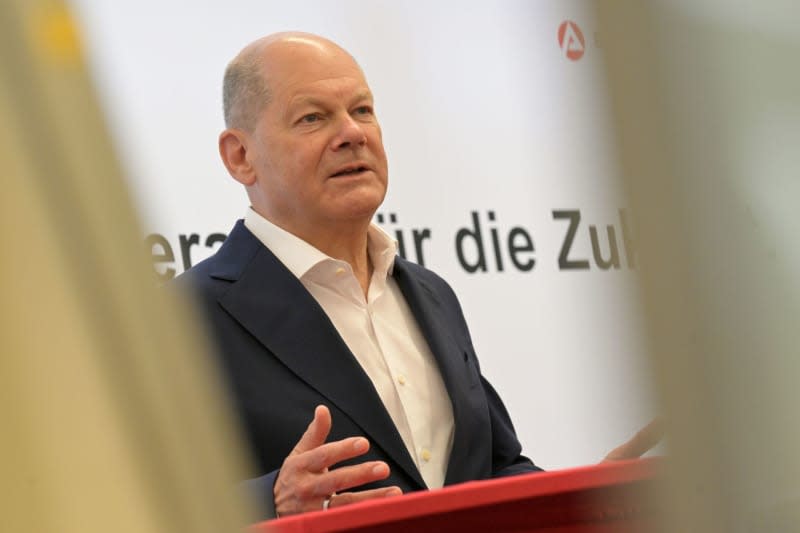Jobs
Germany’s Scholz sees progress, hurdles in placing refugees in jobs

German Chancellor Olaf Scholz said that hurdles still remain for refugees to enter the German labour market despite the government’s so-called “Job Turbo” initiative to speed up integration.
“Many problems have already been solved, but I think it will take a little time for this to settle,” Scholz said on Friday during a visit to the employment agency in his constituency in Potsdam, just outside of Berlin.
“It’s a big task to ensure that everyone comes together, companies looking for workers and workers looking for a job,” Scholz said.
The chancellor said that getting recognition in Germany of foreign professional qualifications appears to be a particular challenge.
“There are 800 different authorities in Germany that are responsible for the recognition of professional qualifications,” Scholz said during a conversation with staff at the job centre.
In general, however, Scholz said that there has been “great progress” in improving job placements and integrating of jobseekers into the labour market.
He also stressed that progress is necessary in light of worker shortages across numerous industries in Germany.
“In the next 20 years, we will have more to do with finding enough workers than with having high unemployment in Germany.”
In autumn, Scholz’s centre-left coalition government announced its “job turbo” scheme aimed at enabling refugees to find work more quickly. The effort is focused on asylum-seekers who have good chances of being granted the right to remain in Germany.
Labour Minister Hubertus Heil said that around 400,000 refugees would be placed in jobs directly from their German language courses, including around 200,000 refugees from Ukraine.
According to figures from April, around 160,000 Ukrainian refugees have been placed in jobs since Russia launched its full-scale invasion of the country in February 2022.










:max_bytes(150000):strip_icc()/roundup-writereditor-loved-deals-tout-f5de51f85de145b2b1eb99cdb7b6cb84.jpg)


